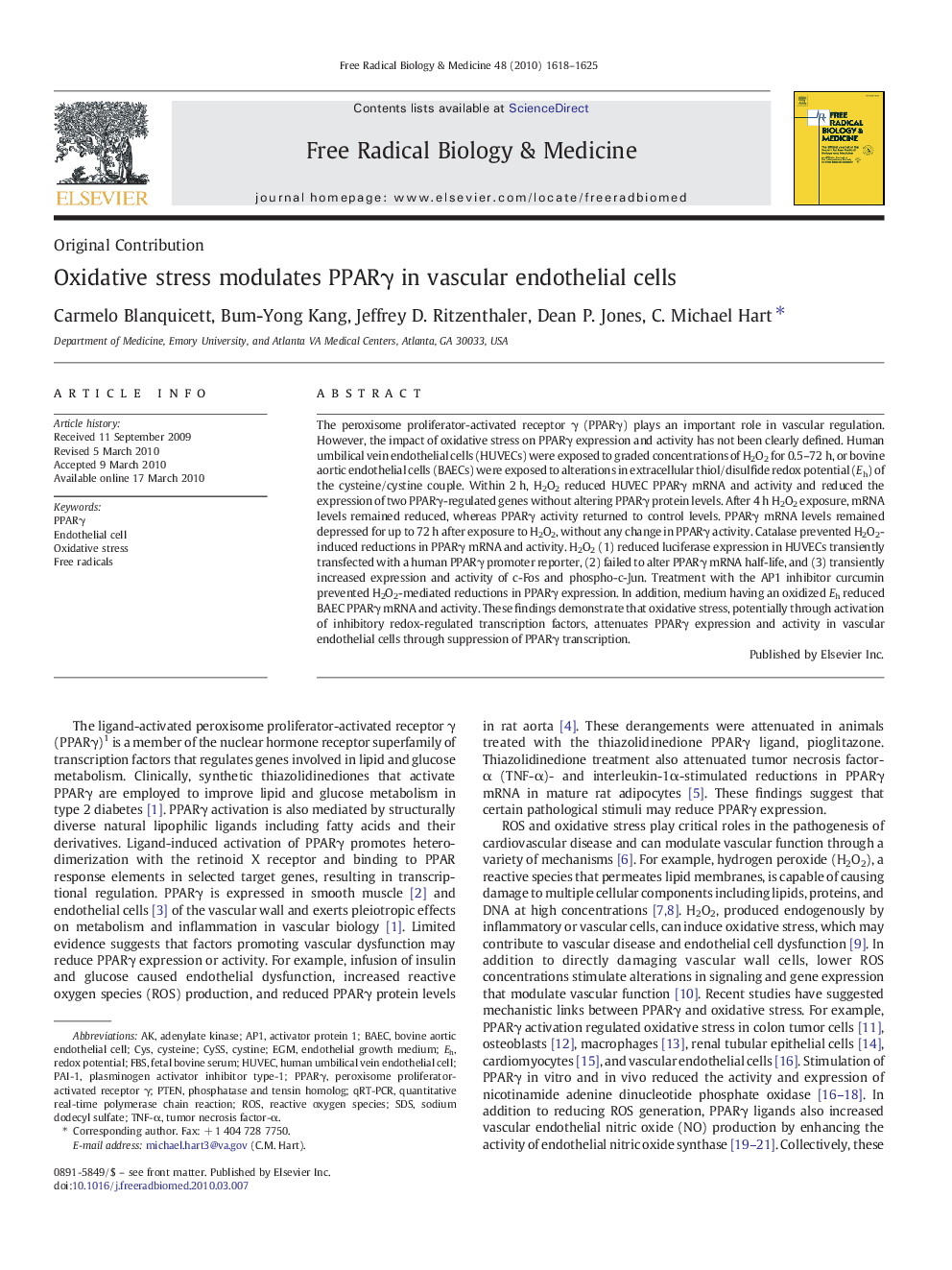| Article ID | Journal | Published Year | Pages | File Type |
|---|---|---|---|---|
| 1910112 | Free Radical Biology and Medicine | 2010 | 8 Pages |
The peroxisome proliferator-activated receptor γ (PPARγ) plays an important role in vascular regulation. However, the impact of oxidative stress on PPARγ expression and activity has not been clearly defined. Human umbilical vein endothelial cells (HUVECs) were exposed to graded concentrations of H2O2 for 0.5–72 h, or bovine aortic endothelial cells (BAECs) were exposed to alterations in extracellular thiol/disulfide redox potential (Eh) of the cysteine/cystine couple. Within 2 h, H2O2 reduced HUVEC PPARγ mRNA and activity and reduced the expression of two PPARγ-regulated genes without altering PPARγ protein levels. After 4 h H2O2 exposure, mRNA levels remained reduced, whereas PPARγ activity returned to control levels. PPARγ mRNA levels remained depressed for up to 72 h after exposure to H2O2, without any change in PPARγ activity. Catalase prevented H2O2-induced reductions in PPARγ mRNA and activity. H2O2 (1) reduced luciferase expression in HUVECs transiently transfected with a human PPARγ promoter reporter, (2) failed to alter PPARγ mRNA half-life, and (3) transiently increased expression and activity of c-Fos and phospho-c-Jun. Treatment with the AP1 inhibitor curcumin prevented H2O2-mediated reductions in PPARγ expression. In addition, medium having an oxidized Eh reduced BAEC PPARγ mRNA and activity. These findings demonstrate that oxidative stress, potentially through activation of inhibitory redox-regulated transcription factors, attenuates PPARγ expression and activity in vascular endothelial cells through suppression of PPARγ transcription.
